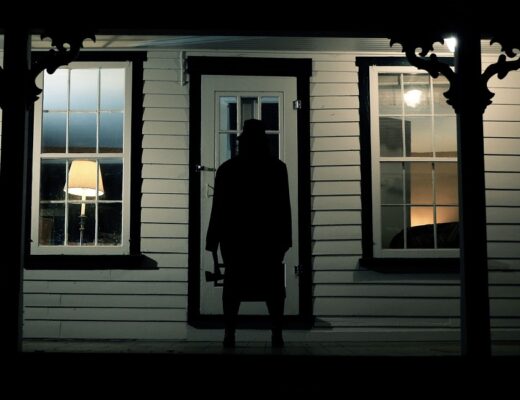Filmmaker Bing Liu became a notable name quite suddenly in 2018 when his feature debut Minding the Gap premiered at Sundance, going on to be a critical favorite that year, as well as one of the Oscar nominees for Best Documentary Feature. A seemingly homegrown endeavor ushered along by non-profit production company Kartemquin Films, Minding the Gap was an intimate, personal story concerning Liu and two of his childhood skater friends who, now adults, are all coming to terms with trauma related to abusive father figures in their youth. This documentary proved Liu an adept, sensitive interviewer, and a director with a keen sense of how to construct a nonfiction narrative, which has lead to his name being attached to an A24 adaptation of Ocean Vuong’s novel On Earth We’re Briefly Gorgeous (though as of this writing the project is no longer listed on IMDb).
Bigger projects lay ahead for Liu, but in the interim he has put together a new, rather slight, documentary entitled All These Sons, co-directed and shot with Joshua Altman (Gap’s editor). A lackluster and impersonal follow-up, the 88-minute All These Sons attempts to provide a chronicle of the work performed by two activists in Chicago’s South and West Side neighborhoods, predominantly black communities nationally infamous for tragically high murder rates tied to gun violence. It’s a subject that has been broadly discussed in various media for well over a decade now, brought to the cultural forefront when drill icon King L first dubbed his home city Chiraq as a nod to the persistent atmosphere of violence gripping the aforementioned neighborhoods. In this light, All These Sons almost immediately tracks as an act of hubris, confirmed as such over the course of the film’s fleet runtime with little room for benefit of the doubt.
All These Sons splits its time between two primary subjects, Billy Moore, a caseworker with IMAN (Inner-City Muslim Action Network), and Marshall Hatch Jr., who runs the MAAFA Redemption Project. Both organizations seek to eliminate gang activity in their respective communities, while also providing regular counseling, rehabilitation, job training, and residence for local (primarily young) Black men who have experienced or perpetrated gun violence. The work and dedication put in by these two men and the team of activists and volunteers surrounding them is remarkable and often inspiring, but All These Sons barely has time to fully assess either of their stories. The film has even less time with which to take in the full, systemic scope of its subject, never pulling back from on-the-ground struggle so as to interrogate the way in which American society has been purposefully constructed to favor whiteness and, by extension, maintain and perpetuate violence and dissonance within non-white communities (the closest the film gets to making this point is a scene set at a town hall meeting where Hatch lectures one of the men in his program on the need to participate in local politics; not very close at all).
All These Sons doesn’t even really have time to tell the story of the men who these programs service, opting to focus on one individual whose tumultuous journey is hastily edited, impatiently taking him from his lowest point to a moment of perseverance with no consideration to pace or audience investment. One can see why Liu assumed this could make for a strong follow up to Minding the Gap, another story of toxic masculinity and men helping other men sort through their trauma, but without personal investment Liu is unable to perceive a bigger sociological/political picture (it’s possible that this was a strategic choice to avoid friction with Hatch’s more conservative-leaning Christian org, but either way, not one that inspires confidence in the sensibilities behind this project). The end results are shallow and generic, signs that this production was undertaken not because the filmmakers felt like it was a story they needed to tell, but because it was available to them.
Published as part of Tribeca Film Festival 2021 — Dispatch 3.







